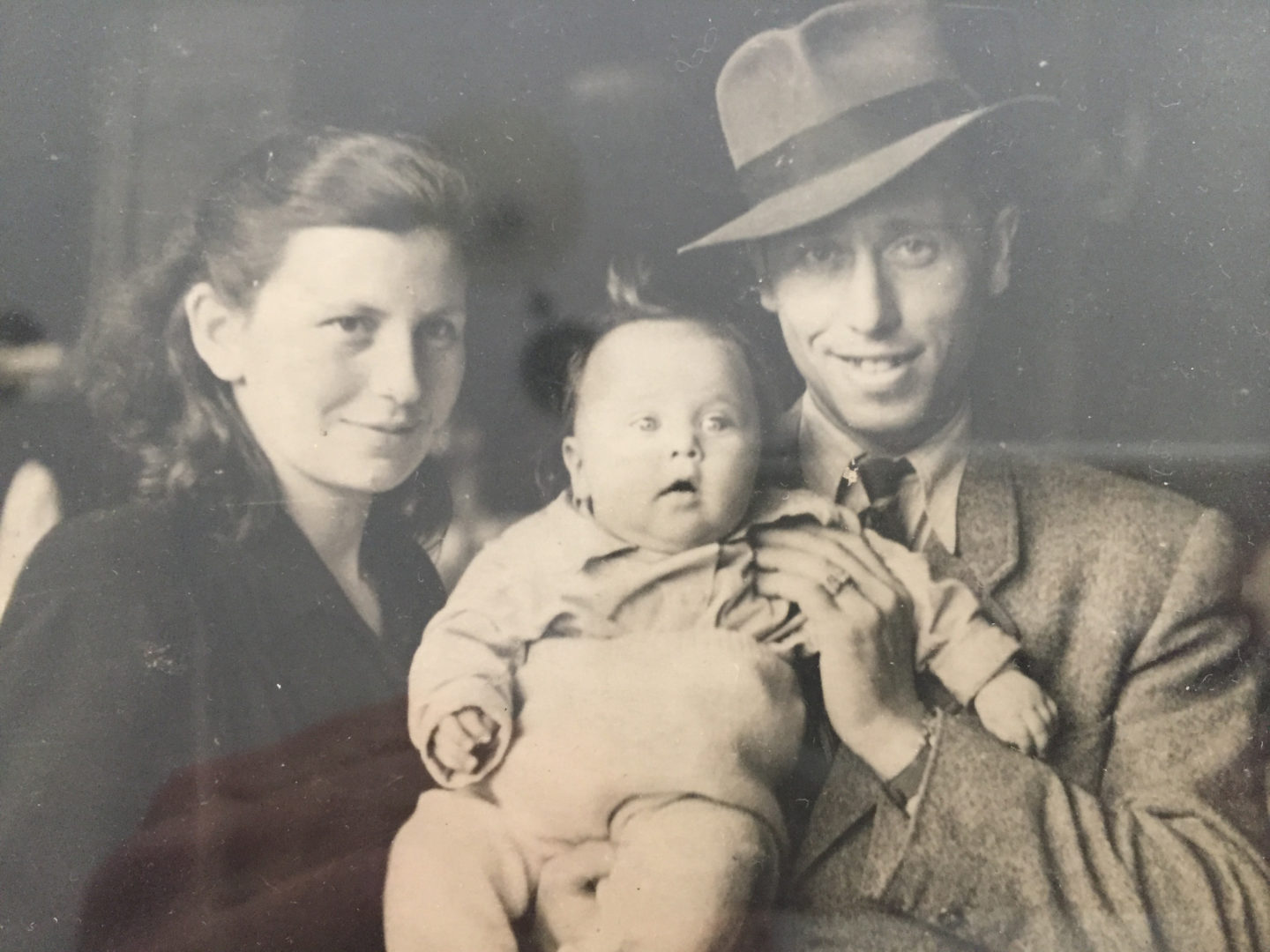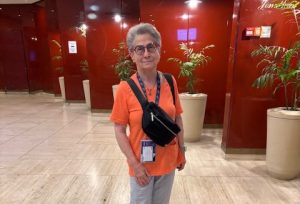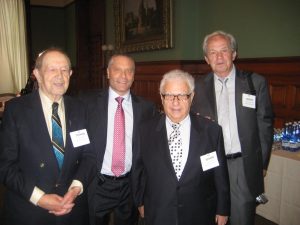Sam walked into the Bernard Betel Centre in Toronto in the late afternoon of Aug. 31, 2016. The adjacent intersection of Bathurst and Steeles was abuzz with busy restaurants and grocery stores. It was business as usual, but not for him. Somewhat dishevelled, he approaches Betel staff for permission to park overnight. When asked why, he began to cry.
Turns out he’d been sleeping in his car and subsisting on not much more than a bagel a day. Sam recounted his six-month downward spiral: couch surfing among acquaintances, unable to afford much-needed medication for chronic illnesses (Sam has one kidney). They were hard times, but not the hardest he’d ever faced. Sam is a Holocaust survivor. His entire family perished at Auschwitz. After being liberated, he moved to Israel and is a veteran of the Six Day War.

Can it be that at this juncture, after everything he’s been through, Sam should be homeless? Of 8,000 Holocaust survivors living in Toronto, a quarter of them live below the poverty line. Sam puts a face to those numbers. And now, the Kehilla Residential Programme, with the financial support of the Azrieli Foundation, is working to put a dent in these shocking statistics by offering a rental assistance program.
Betel staff found Sam temporary accommodations in a hotel and integrated him into their programs, which provide him with two meals a day. Staff also reached out to a number of relevant agencies with a call to action for other assistance, and to Kehilla for permanent housing. Kehilla is a non-profit housing provider and the official housing agency of UJA. Kehilla developed and manages a portfolio of almost 400 not-for-profit housing units for the Jewish community.
READ: BQ WANTS INDEPENDENT PALESTINIAN STATE RECOGNIZED
In less than a week, Kehilla located an apartment for Sam in one of its buildings, then processed an application under its rental assistance program. Funding from the Claims Conference, which provides support to Holocaust survivors, doesn’t cut it, and survivors can’t claim rental assistance from anywhere else on an ongoing basis. This has serious implications in a high rent city, such as Toronto. Combining Kehilla’s rent supplement with Sam’s pension made it possible for him to afford the rent and still have money left over for food and other necessities. Betel provides weekly programming in the Kehilla building, as part of its Healthy at Home initiative, which is helping Sam integrate into the community and develop new friendships.
Unfortunately, Sam’s story is not unique.
Alex, 74, is a survivor who arrived in Canada from Russia about five years ago, after being sponsored by his son. He left a good government job. His wife left her job, as well. They sold their home in Saint Petersburg and handed the proceeds to their adult children who took the money, gave them a small sum and cut off contact.
The funds are not sufficient to live on, but the terms of their sponsorship make them ineligible for government assistance. With no English language skills, Alex works part time as an Uber driver to try to make ends meet.
There are many reasons why survivors live in poverty and are unable to afford rent, including physical disabilities and mental health issues. Survivors suffer from almost 15 per cent more disabilities than the general Jewish population in their age group. Some, like Sam, slip through the cracks. Others, like Alex, get trapped between elder abuse and legislation.
In her 17 years as the executive director of Kehilla, Nancy Singer has seen the words “affordable housing” go from a dry description on a committee agenda, to a sadly sexy catchphrase worthy of public awareness. Singer says she is very thankful for the Azrieli Foundation’s funding. “We see firsthand the gaps in access to affordable housing and what that looks like up close and personal. We are making a real difference in the lives of some survivors and other vulnerable groups in this city, but there are many more people in our own community who need financial assistance with their rent. I hope that more donors will step up and help,” she said.
The Azrieli Foundation funds, operates and partners with a wide range of initiatives and programs in the fields of Holocaust education, scientific and medical research, education, architecture and design, Jewish community and the arts. Azrieli Foundation chair and CEO Naomi Azrieli feels passionate about supporting survivors.
“When Kehilla explained the need for support to pay for survivors’ housing, we simply could not stand by. It is our duty as community members to ensure that their basic needs are met. We’re grateful that Kehilla Residential Program is doing this life-changing work,” said Azrieli.
Cary Green, the chairman of Greenwin, a residential property management company, is a tireless champion of affordable housing in the Greater Toronto Area and was one of the private developers that was instrumental in helping Kehilla launch its broader rental assistance program. Helping people afford housing shouldn’t be a minefield, but he passionately recounts previous roadblocks and lost opportunities.
“I’ve seen community agency-owned sites ready to be developed for affordable apartments for vulnerable seniors and survivors, instead be sold to the market for non-affordable purposes. As a long-time developer of affordable housing for the general community, I’m very pleased that Kehilla and Azrieli are helping this important and vulnerable group,” he said.
Judith, originally Hungarian, survived over a year at Auschwitz. Our conversation was interrupted by a call from the hospital. She explains that it was a follow-up, as she had recently fallen and bumped her head. “I don’t remember falling, just woke up on the floor. They’re worried about my heart. I don’t want to take anything special,” she said.
Judith assured me she had “all the time in the world” to talk, but modified that, pragmatically informing me that she’ll turn 94 in December. Despite her advanced age, the government informed her that she would be on a housing subsidy waiting list for five years. “By that time, I’ll be in my condo cemetery plot,” she said.
Judith worked until she was 67. Since then, she has buried her husband and the son who helped her move to Canada. Now in her third month on the rental assistance program, Edit is grateful. “I have enough. I don’t need manicures. I live a plain life,” she said.
Sam, Alex and Judith (not their real names) are just three people behind the shocking numbers: 2,000 survivors in Toronto alone are poor. Many survivors wear a number on their arm – a constant reminder of a terrible time when they were ripped from their homes. Let’s put weight to the words: never again.







